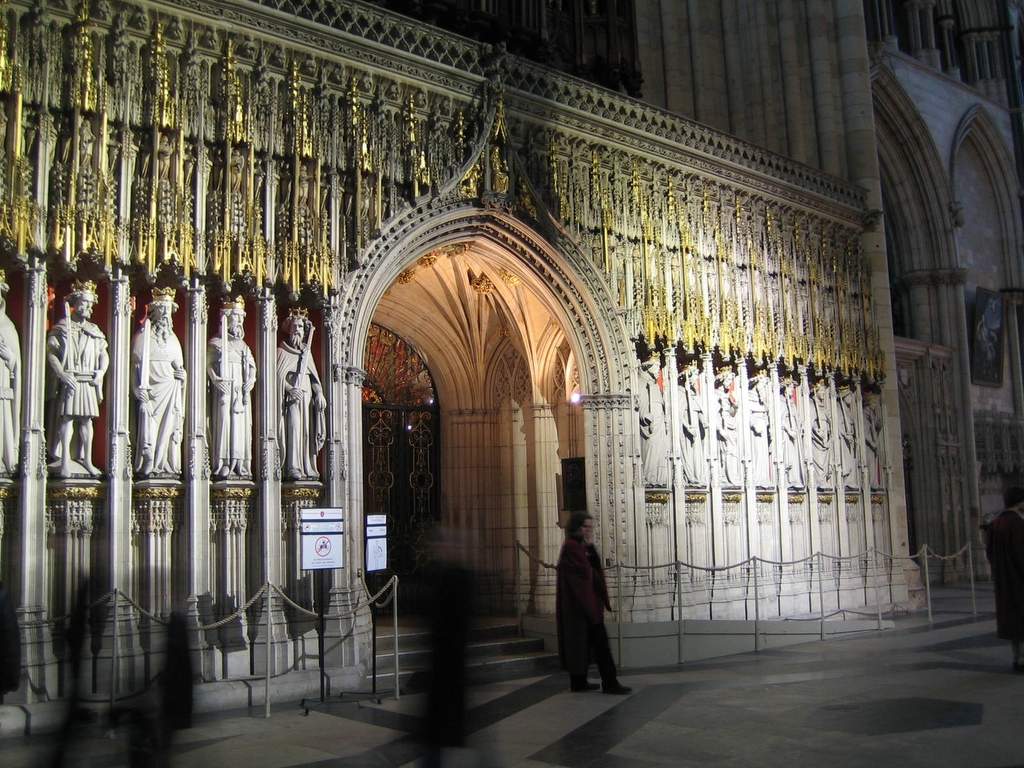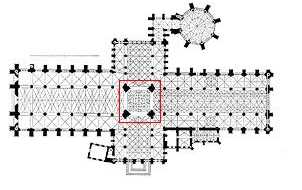
 | York Minster: Choir Screen |
Visited 18-20 March, 2006
One of the finest bits of history (and sculpture) remaining in York Minster is the screen that separates the transept and nave areas from the choir (Quire). Many medieval cathedrals separate their naves (often used for secular purposes like selling wine) from the inner sanctum of the choir dedicated to the religious services -- a church within a cathedral, so to speak.
York's late 15th century "Kings' screen" is magnificent but asymmetrical as sculptor William Hyndeley had to accommodate the 15 nearly-life-size statues of English kings from William the Conqueror to the time of the screen creation in the reign of the child king Henry VI. Most likely, Henry VI ruined the symmetry when his statue was added at the last minute when Henry V died unexpectedly in 1422.
Choir screen symmetry was not all that Henry VI damaged. At age nine months, he was tagged as an early bloomer (if you strain, you might get a bad pun about the War of Roses) when his father (Henry V) died. Henry VI was crowned King of England before his 8th birthday and King of France about two years later. (He did not exercise power until he reached age 16 and, not coincidentally, his mother died.) He was thought to be too spiritual a man to be an effective king. (Americans seemed to have reversed that trend lately even though they still expect presidents to inherit thrones from their fathers.) Despite his spirituality, Henry reigned during the War of Roses, one of the bloodiest in English history. Henry himself was insane nearly the last two decades of his life and was murdered. Was it easier to tell if the head of state was insane before politicians invented spin?) Henry VI's statue on the choir screen is not the original which was defaced many times, replaced with one of James I, and finally replaced, hopefully for good, in 1810. Seems like Henry VI had trouble with endings even though he was well begun.
Perhaps the rest of the statues survived by being more historical than Catholic. The most likely king destroyers, the Parliamentarians who defeated took York during the English Civil War, were forbidden to ransack the cathedral as their commander was from Yorkshire.
No comments:
Post a Comment